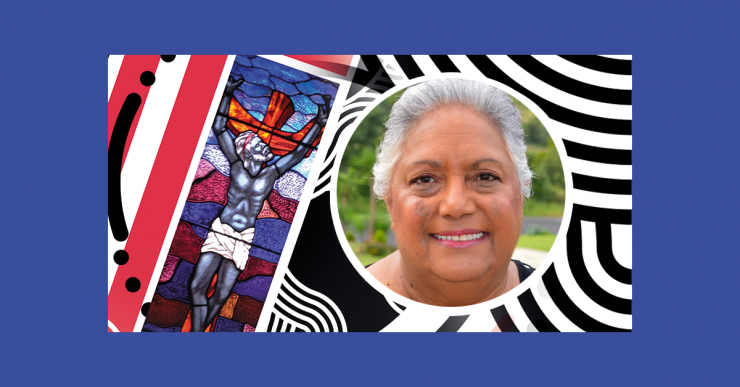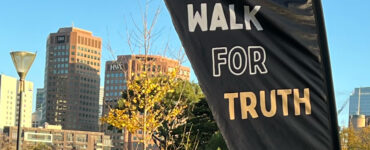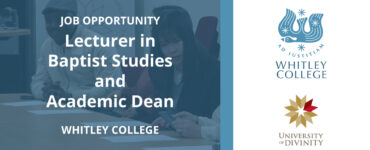“No wonder our Church is dying, we’re no longer standing on the margins with the people who need us most,” says Professor Anne Pattel-Gray, Professor of Indigenous Studies and inaugural Head of the School of Indigenous Studies at the University of Divinity, and Bidjara leader.
“In the 70s, 80s, and early 90s the Uniting Church was full-on in social justice and very much a stronghold for speaking out against the injustice of First Nations’ people. But over the years we have become silent on a lot of these topics. As a Church we need to stop being so fearful and step out in God’s strength, be courageous and hold people accountable”.
Professor Pattel-Gray will be a keynote speaker at the Uniting Church’s Walking Together Conference on October 22 in Sydney. In her talk she will explore the structural racism that exists within the Church and how it can better support Indigenous voices.
“The Church must grapple with some really hardcore issues about itself. It’s got to hold a mirror up and be prepared to call out some of its sin, and one of those is colonialism. Our Church still holds to a racist theology and biblical narratives to justify colonial wealth, privilege and power.
“Our Church holds very little value for Aboriginal leadership as it doesn’t believe we have much to contribute in providing leadership to the whole of the Uniting Church. There have never been discussions nor the appointment of an Aboriginal leader for President of our Church. How many Aboriginal people are on our Standing Committee? How many of us are at the table where major decisions are being made? I’d love to see the Church deal with its own structure and apply some of these broader conversations, like the Uluru Statement and Indigenous Voice, to our own institution. That is where true commitment has to begin and this is where the church will show real leadership and lead by example.
Anne’s faith is deeply rooted in her cultural beliefs and identity – an affirmation strongly pushed by her mother – in the face of racism by the Methodist Church they attended when growing up in Townsville, Queensland.
“For so long the Church told us we were descendants of Ham and therefore we were a cursed race of people. Christianity doesn’t hold a lot when you’re being told you’re worthless, and therefore evil. My mother was very staunch on affirming our cultural identity as given by the Creator, and therefore instilling in us the belief that we are good and loved.
“I had a lot of questions growing up as to how the Bible was interpreted. Some aspects I even challenged the Minister on when it seemed their faith and deeds didn’t match up. For example, a Minister once preached about the Good Samaritan, and I said Reverend how can you talk about the Good Samaritan when the majority of people in this Church would step over my people in the gutter and would never help them. With that I got a clip over the ear from my mother! (laughs).
“She told me to never raise the conversations we have at home in a public forum. From then I knew my views needed to be kept secret from the mainstream Church because they wouldn’t appreciate what I had to say. But as I’ve gotten older, God has compelled me to talk into this space more and more as I continue to see the racism and injustice perpetuated against our people,”
Despite the injustice, Anne’s faith has never wavered, and she continues to hold a deep connection to the Church.
“I love the Uniting Church, warts and all. We have shortcomings but we also have great strengths that we need to build on. We’re here to love everyone and welcome all to the table. I think we’ve forgotten that,” Professor Pattel-Gray said.
The Synod of NSW and the ACT acknowledges and supports the views of Dr Pattel-Gray. In recent years the Synod has been working across a range of areas to improve its understanding of First Peoples’ perspectives and to support Synod, Presbyteries and Congregations to undertake practical actions to build relationships with First Peoples. This work includes the Synod endorsement of the Walking Together Action Plan 2021-2023, the creation of a First Nations Resources website, the publication of a Guide to Aboriginal Community Engagement and Building Trust Relationships, the creation of a First Peoples Theological Scholarship, and requiring all Synod staff to complete Aboriginal Cultural Capability training. It has also been working to include more Aboriginal businesses in our supply chain. While these are positive steps, the Synod acknowledges that there is still much more work to be done.
More information on the Walking Together Conference, including how to purchase tickets, can be found here.







Add comment